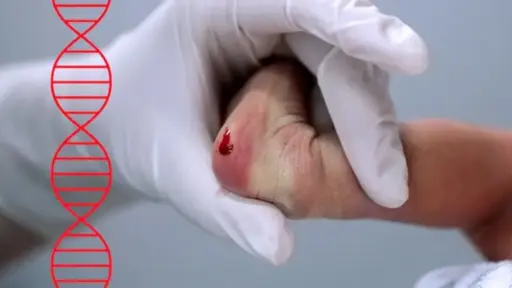Flere har nu modtaget besked i Digital Post om, at deres hælblodprøve og helbredsdata er blevet brugt i iPSYCH forskning uden samtykke, uden at man på noget tidspunkt er blevet informeret eller har haft mulighed for at sige ja eller nej.
Det rejser seriøst alvorlige etiske og menneskeretlige spørgsmål. Forskning med DNA og helbreds/psykiatriske oplysninger kræver ifølge internationale standarder frivilligt og informeret samtykke. Det har vi ikke givet. At forskningen er “lovlig” i Danmark ændrer ikke på det etiske ansvar, især ikke når det handler om følsomme data og mennesker, der aldrig er blevet spurgt.
Retten til privatliv og kontrol over egne helbredsoplysninger er beskyttet af både EU’s charter om grundlæggende rettigheder (artikel 3 og 8) og Den Europæiske Menneskerettighedskonvention (artikel 8). Det gælder også i forskning.
Hvis det her skal få konsekvenser, kræver det, at man selv handler. Det mest direkte man kan gøre, er at kontakte de tidsskrifter, der har udgivet forskningen. De har altid et selvstændigt ansvar for at sikre, at etikken er overholdt, og de kan kræve dokumentation, rejse sagen eller trække artikler tilbage.
Hvis du har fået brevet:
-Find de relevante iPSYCH-studier (se liste nedenfor i kommentarfeltet).
-Skriv til tidsskrifterne og oplys, at dine data er brugt uden samtykke. Bed om at de forholder sig til det. Send evt. e-Boks bevis på du er med i studierne og nyhedslinks der omtaler sagen.
-Det er din ret, og det er den eneste måde at sætte en stopper for det fremadrettet, så forskerne kan se, at det har en konsekvens.



Liste af artikler fra https://ipsych.dk/en/research/publications/previous-publications : (de har udgivet 1k+ studier, men har taget fra 2021 og 2022 her hvis nogen vil hjælpe med at kuratere en liste vil jeg redigere og tilføje):
American Journal of Human Genetics - ajhg@ajhg.net
Albiñana C, Grove J, McGrath JJ, Agerbo E, Wray NR, Bulik CM, et al. Leveraging both individual-level genetic data and GWAS summary statistics increases polygenic prediction. American Journal of Human Genetics. 2021;108(6):1001-11.
Pedersen EM, Agerbo E, Plana-Ripoll O, Grove J, Dreier JW, Musliner KL, et al. Accounting for age of onset and family history improves power in genome-wide association studies. American Journal of Human Genetics. 2022;109(3):417-32.
Biological Psychiatry - biol.psych@sobp.org
Ni G, Zeng J, Revez JA, Wang Y, Zheng Z, Ge T, et al. A Comparison of Ten Polygenic Score Methods for Psychiatric Disorders Applied Across Multiple Cohorts. Biological Psychiatry. 2021;90(9):611-20.
Yang Z, Wu H, Lee PH, Tsetsos F, Davis LK, Yu D, et al. Investigating Shared Genetic Basis Across Tourette Syndrome and Comorbid Neurodevelopmental Disorders Along the Impulsivity-Compulsivity Spectrum. Biological Psychiatry. 2021.
Blokland GAM, Grove J, Chen CY, Cotsapas C, Tobet S, Handa R, et al. Sex-Dependent Shared and Nonshared Genetic Architecture Across Mood and Psychotic Disorders. Biological Psychiatry. 2022;91(1):102-17.
Maihofer AX, Choi KW, Coleman JRI, Daskalakis NP, Denckla CA, Ketema E, et al. Enhancing Discovery of Genetic Variants for Posttraumatic Stress Disorder Through Integration of Quantitative Phenotypes and Trauma Exposure Information. Biological Psychiatry. 2022;91(7):626-36.
Mullins N, Kang J, Campos AI, Coleman JRI, Edwards AC, Galfalvy H, et al. Dissecting the Shared Genetic Architecture of Suicide Attempt, Psychiatric Disorders, and Known Risk Factors. Biological Psychiatry. 2022;91(3):313-27.
Shorter JR, Meijsen J, Nudel R, Krebs M, Gådin J, Mikkelsen DH, et al. Infection Polygenic Factors Account for a Small Proportion of the Relationship Between Infections and Mental Disorders. Biological Psychiatry. 2022;92(4):283-90.
Brain, Behavior, and Immunity
Liu X, Nudel R, Thompson WK, Appadurai V, Schork AJ, Buil A, et al. Genetic factors underlying the bidirectional relationship between autoimmune and mental disorders - Findings from a Danish population-based study. Brain, Behavior, and Immunity. 2021;91:10-23.
Brain
Skotte L, Fadista J, Bybjerg-Grauholm J, Appadurai V, Hildebrand MS, Hansen TF, et al. Genome-wide association study of febrile seizures implicates fever response and neuronal excitability genes. Brain. 2022.
JAMA Psychiatry - jamapsych@jamanetwork.org
Agerbo E, Trabjerg BB, Børglum AD, Schork AJ, Vilhjálmsson BJ, Pedersen CB, et al. Risk of Early-Onset Depression Associated With Polygenic Liability, Parental Psychiatric History, and Socioeconomic Status. JAMA Psychiatry (Chicago, Ill). 2021.
Musliner KL, Agerbo E, Vilhjálmsson BJ, Albiñana C, Als TD, Østergaard SD, et al. Polygenic Liability and Recurrence of Depression in Patients With First-Onset Depression Treated in Hospital-Based Settings. JAMA Psychiatry (Chicago, Ill). 2021;78(7):792-5.
Calle Sanchez X, Helenius D, Bybjerg-Grauholm J, Pedersen C, Hougaard DM, Borglum AD, et al. Comparing Copy Number Variations in a Danish Case Cohort of Individuals With Psychiatric Disorders. JAMA Psychiatry (Chicago, Ill). 2022;79(1):59-69.
Molecular Psychiatry - MolecularPsychiatry@us.nature.com
Hess JL, Tylee DS, Mattheisen M, Schizophrenia Working Group of the Psychiatric Genomics C, Lundbeck Foundation Initiative for Integrative Psychiatric R, Borglum AD, et al. A polygenic resilience score moderates the genetic risk for schizophrenia. Molecular Psychiatry. 2021;26(3):800-15.
Deak JD, Zhou H, Galimberti M, Levey DF, Wendt FR, Sanchez-Roige S, et al. Genome-wide association study in individuals of European and African ancestry and multi-trait analysis of opioid use disorder identifies 19 independent genome-wide significant risk loci. Molecular Psychiatry. 2022.
Nature - nature@nature.com
Trubetskoy V, Pardiñas AF, Qi T, Panagiotaropoulou G, Awasthi S, Bigdeli TB, et al. Mapping genomic loci implicates genes and synaptic biology in schizophrenia. Nature. 2022;604(7906):502-8.
Nature Communications - naturecommunications@nature.com
Demontis D, Walters RK, Rajagopal VM, Waldman ID, Grove J, Als TD, et al. Author Correction: Risk variants and polygenic architecture of disruptive behavior disorders in the context of attention-deficit/hyperactivity disorder. Nature Communications. 2021;12(1):1166.
Krebs MD, Themudo GE, Benros ME, Mors O, Børglum AD, Hougaard D, et al. Associations between patterns in comorbid diagnostic trajectories of individuals with schizophrenia and etiological factors. Nature Communications. 2021;12(1):6617.
Sun J, Wang Y, Folkersen L, Borné Y, Amlien I, Buil A, et al. Translating polygenic risk scores for clinical use by estimating the confidence bounds of risk prediction. Nature Communications. 2021;12(1):5276.
Verhoef E, Grove J, Shapland CY, Demontis D, Burgess S, Rai D, et al. Discordant associations of educational attainment with ASD and ADHD implicate a polygenic form of pleiotropy. Nature Communications. 2021;12(1):6534.
Nature Genetics - genetics@us.nature.com
Antaki D, Guevara J, Maihofer AX, Klein M, Gujral M, Grove J, et al. Publisher Correction: A phenotypic spectrum of autism is attributable to the combined effects of rare variants, polygenic risk and sex. Nature Genetics. 2022;54(8):1259.
Fu JM, Satterstrom FK, Peng M, Brand H, Collins RL, Dong S, et al. Rare coding variation provides insight into the genetic architecture and phenotypic context of autism. Nature Genetics. 2022.
Grotzinger AD, Mallard TT, Akingbuwa WA, Ip HF, Adams MJ, Lewis CM, et al. Genetic architecture of 11 major psychiatric disorders at biobehavioral, functional genomic and molecular genetic levels of analysis. Nature Genetics. 2022;54(5):548-59.
Science Advances - ScienceAdvancesEditorial@aaas.org
Allesøe RL, Nudel R, Thompson WK, Wang Y, Nordentoft M, Børglum AD, et al. Deep learning-based integration of genetics with registry data for stratification of schizophrenia and depression. Sci Adv. 2022;8(26):eabi7293.
The American Journal of Psychiatry - ajp@psych.org
Brikell I, Wimberley T, Albiñana C, Pedersen EM, Vilhjálmsson BJ, Agerbo E, et al. Genetic, Clinical, and Sociodemographic Factors Associated With Stimulant Treatment Outcomes in ADHD. American Journal of Psychiatry. 2021:appiajp202020121686.
Jeg kan se der er en del danske forskernavne bl.a. forfatterne. Kunne man tage direkte kontakt til dem, og forsøge at få lidt klarhed over, om de var klar over at der ikke er indhentet samtykke til den data de har brugt?
Rettelse: Jeg var ikke klar over at iPSYCH var et dansk påfund, så er mit forslag nok ligemeget.